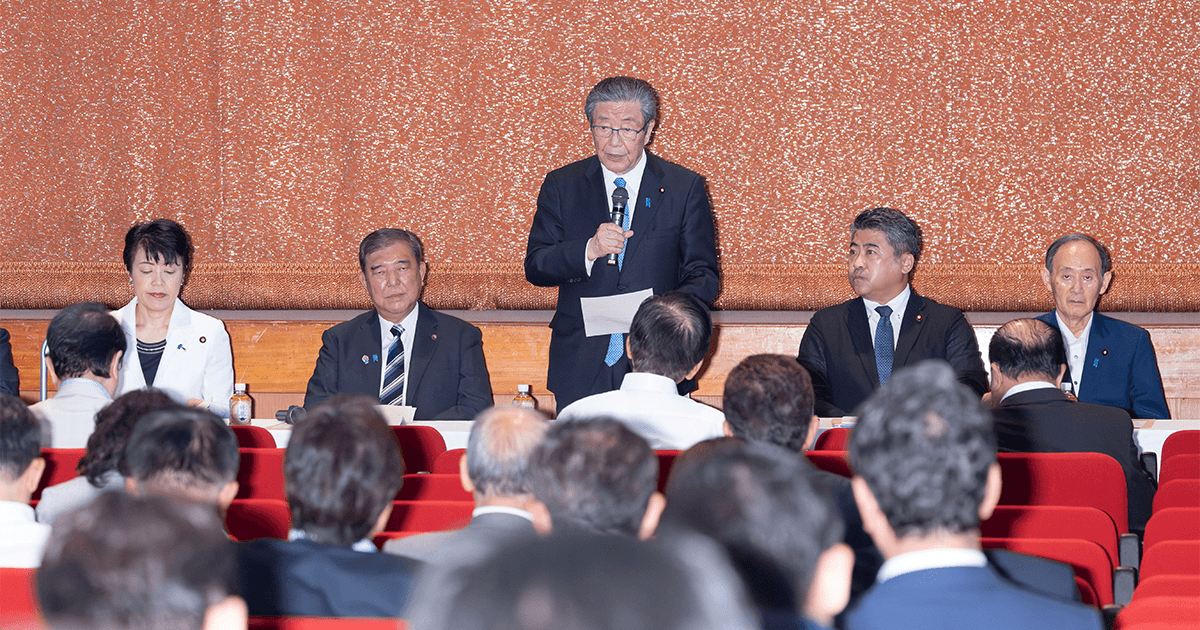Thank you for reading Observing Japan. This post is available to all readers.
If you are looking for timely, forward-looking analysis of the stories in Japans’s politics and policymaking that move markets, I have launched a service through my business, Japan Foresight LLC. For more information about Japan Foresight’s services or for information on how to sign up for a trial or schedule a briefing, please visit our website or reach out to me.

After a delay, the Liberal Democratic Party (LDP) committee tasked with conducting a post-mortem analysis of the party’s poor performance in the July upper house elections delivered its report (also shared below) to a general meeting of LDP lawmakers on Tuesday, 2 September. The committee essentially sought to answer three questions, and, in doing so, perhaps offered an implicit answer to the biggest question facing the LDP.
The report first answers the question, “What went wrong in July?” To this question, it gives three answers. First, the Ishiba government, its approval ratings underwater since last year’s general election, sapped the LDP’s strength. Second, the LDP failed at what the report describes as the LDP’s core electoral strategy, winning the support of at least 80% of its own supporters and taking a sizable share of independents. And third, the party lost the votes of young voters and at least some conservative voters who had supported the party in the past.
The report’s second question – “Why did this happen?” – may be more interesting. The report provides nine answers to this question, and, while Prime Minister Ishiba Shigeru is not personally blamed anywhere, arguably responsibility for eight of the nine causes can be laid at the feet of the prime minister. The one exception may be the loss of trust due to political corruption, responsibility for which centered mainly on the former Abe faction and predated Ishiba’s elevation to the party presidency. Of the remaining eight, the report is damning, pointing to:
Policy missteps, especially the failure to appreciate economic hardships and cost-of-living issues;
A lack of political vision, noting the government’s and party’s failures to make clear what the party stands for both in response to its 2024 general election defeat and the public’s broader feeling of stagnation, particularly among young voters and conservative voters; and
Communication failures, including not making more efforts to listen to voters, a careless remark by an upper house member about a natural disaster during the campaign, and a communications infrastructure grossly inadequate for the contemporary information environment, noting both the party’s failure to use social media effectively to propagate its messages and its inability to combat misinformation and disinformation.
The longest section of the report, taking up the final five-and-a-half pages of the twelve-page report, takes up the question, “Where does the LDP go from here?” Perhaps not surprisingly, most of these recommendations address the third bucket of issues, since the content of the party’s messaging and the identity of its messengers was beyond the scope of the committee’s work. Many of these recommendations are organizational – centralizing more power in party headquarters and bolster its capabilities for develop and support candidates, organize party communications, and oversee finances and messaging to head off scandals – and virtually all of them relate in some way to improving how the party engages with voters. The report recommends strengthening regional parties, strengthening the party’s ability to use its network of dues-paying members to distribute information, reconstructing links with civil society organizations and professional associations, facilitate more direct communication between candidates and voters, fundamentally change the party’s social media presence from top to bottom (including capacity for countering false information), and improve communication skills within the party, with an emphasis on easily understood policy explanations. In other words, all of the issues that these reforms are expected to address are entirely separate from the more fundamental question, discussed previously, of what kind of party the LDP wants to be.
This lengthy wish list of party reforms, however, will likely prompt one more question for the LDP’s lawmakers and prefectural chapters, namely is Ishiba Shigeru the right person to achieve this fundamental overhaul before the party has to face voters again? The prime minister has until 8 September to make the case before 342 electors – the LDP’s 295 national lawmakers and its 47 prefectural chapters – submit their votes on the question of whether to trigger the party’s heretofore-unused recall process and hold an early leadership election. Ishiba, in his opening remarks Tuesday, was apologetic about the party’s performance, but, with members of the party executive announcing their resignation following the delivery of the election post-mortem, it may be difficult for Ishiba himself to escape responsibility too.


